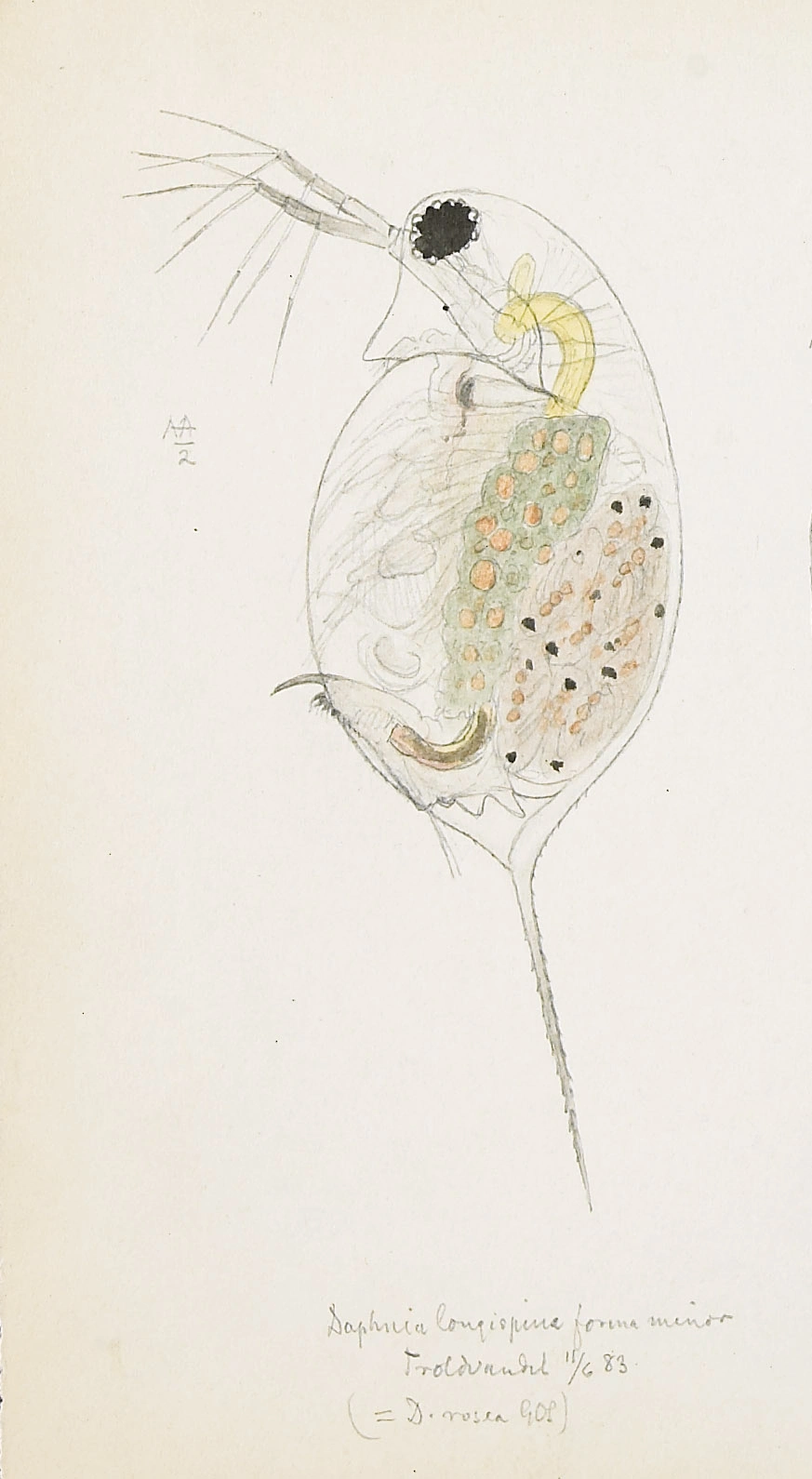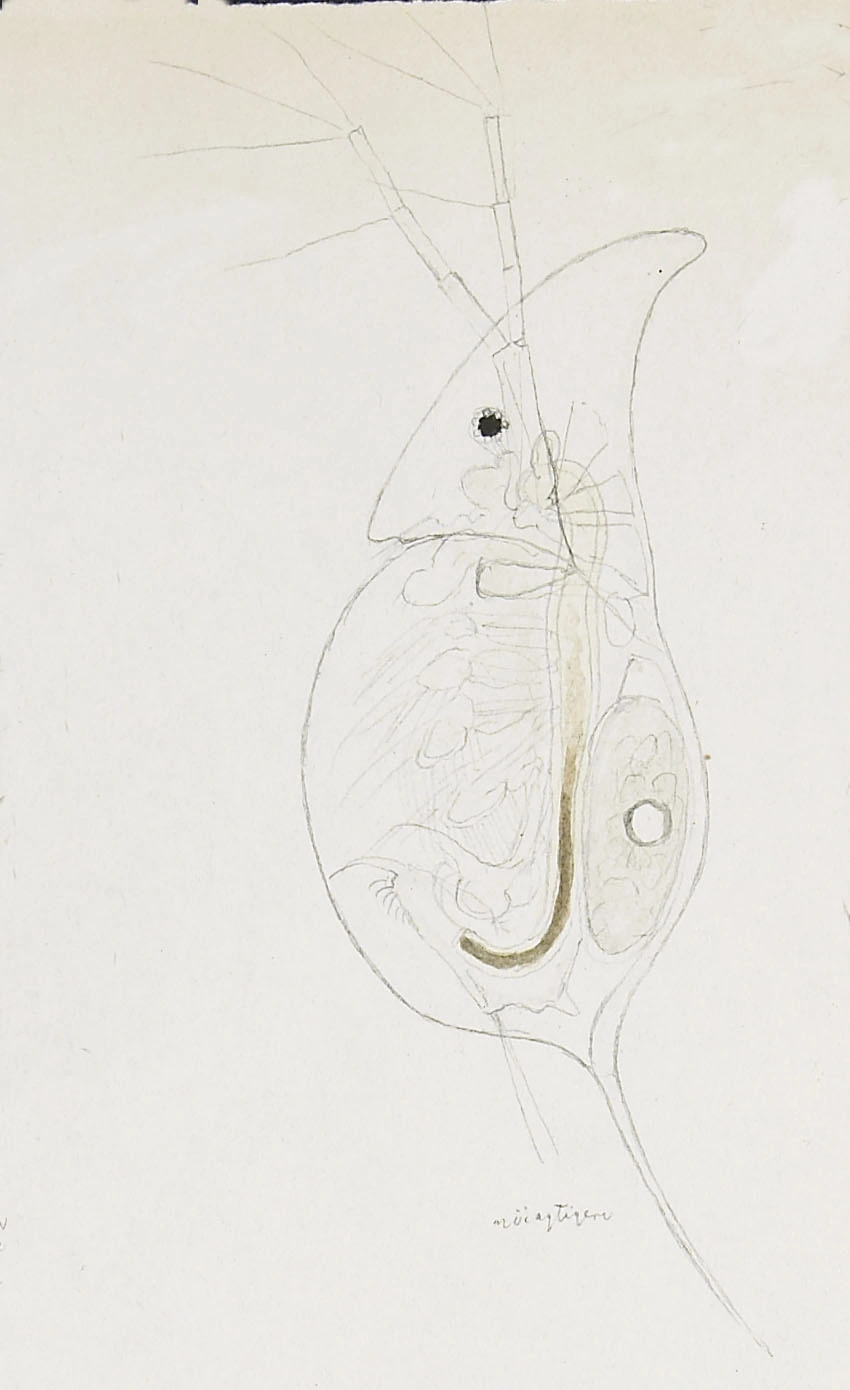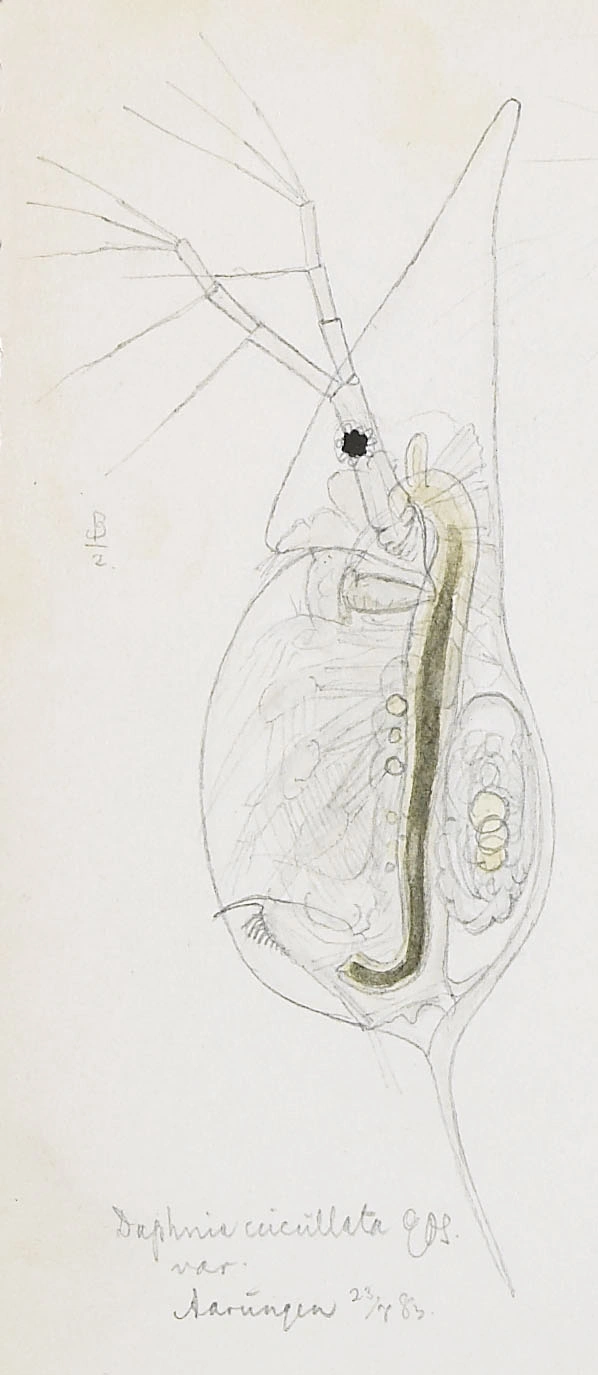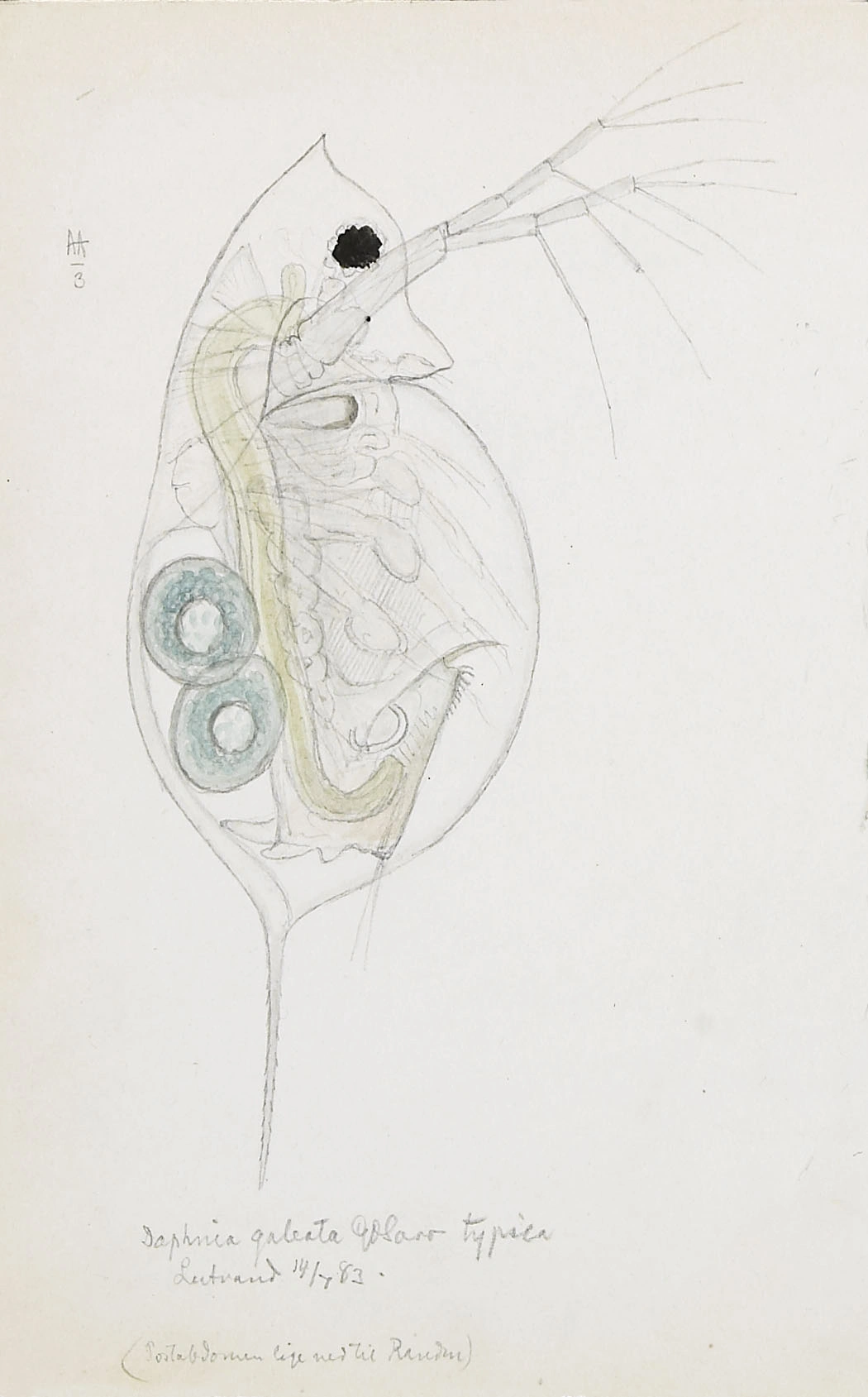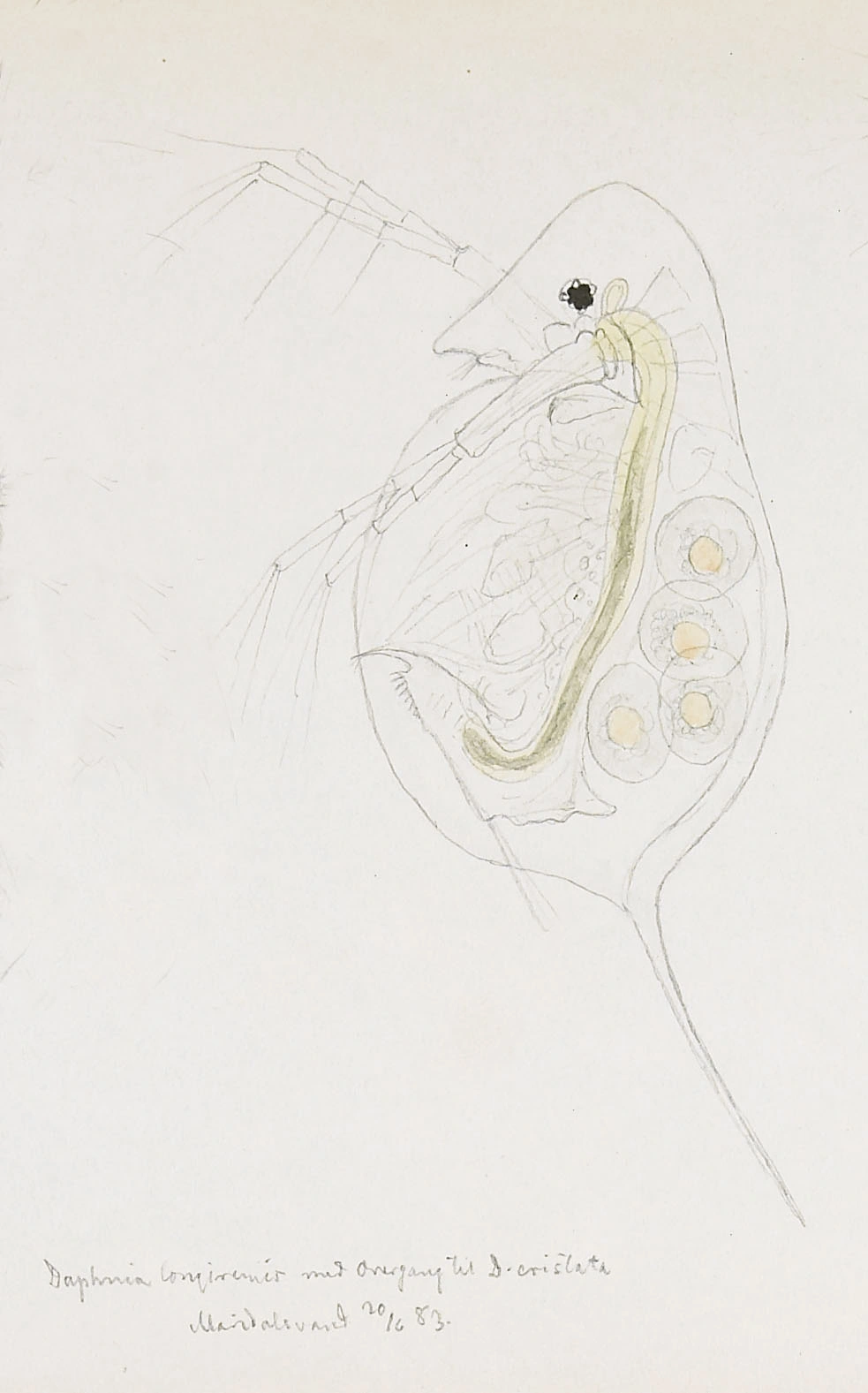Daphnia longispina
Daphnia longipina is our most common daphniid and is distributed all over the country from sea level to the high mountain. It is found both in large clearwater lakes as well as in small nutrientrich ponds. The species is characterized by its large compound eye and long spine.
Key characteristics
Daphnia longispina (female)
Daphnia longipina has a body, which is generally more slender than in other species of this genus. Seen from the side its head comprises about one third of the carapace. Cyclomorphosis is less evident compared to other daphniids. Its abdominal spine is comparatively long, thereby its name. Its compound eye is large with very distinct crystal lences. The eyespot (oscellus) is small lying roughly midway between the eye and the dorsal edge of the head. It is rather hyaline, sometimes with a yellowish, greenish grey or brownish grey tinge.
Female: Length 0.9–2.3 mm
Male: Length 1.0–1.7 mm
Ecology and distribution
D. longipina is our most common daphniid and is distributed all over the country with equal frequency from sea level to 1501 m a.s.l. Though it is mainly looked upon as a plankton species found in about 40 % of the investigated lakes, it is also common in ponds and in the littoral of small lakes where it may co-occur with D. pulex. It is used as an indicator of non acidic condition. However when the humus content is high, it may be found in acid water. The content of electrolytes in water bodies that contains D. longispina varies a lot.
| Vitenskapelig navn | < 4,5 | 4,5 - 4,9 | 5,0 - 5,4 | 5,5 - 5,9 | 6,0 - 6,4 | 6,5 - 7,0 | 7,0 - 7,4 | > 7,5 |
|---|---|---|---|---|---|---|---|---|
| 11,3 | 8,2 | 20 | 35,9 | 54,8 | 47,2 | 62,1 | 68,5 |
| Vitenskapelig navn | < 1,0 | 1,0 - 1,4 | 1,5 - 1,9 | 2,0 - 2,9 | 3,0 - 3,9 | 4,0 - 4,9 | 5,0 - 6,9 | 7,0 - 9,9 | > 10,0 |
|---|---|---|---|---|---|---|---|---|---|
| 31,3 | 25,7 | 34,3 | 42,3 | 45,6 | 45,8 | 53,2 | 62 | 50,8 |
| Vitenskapelig navn | < 0,01 | 0,01 - 0,09 | 0,1 - 0,9 | 1,0 - 9,9 | 10,0 - 99 | 100 - 999 | > 1000 |
|---|---|---|---|---|---|---|---|
| 0 | 26,5 | 21,1 | 37,7 | 45,6 | 46,9 | 49,5 |
| Vitenskapelig navn | < 100 | 100-299 | 300-499 | 500-699 | 700-999 | >1000 |
|---|---|---|---|---|---|---|
| 51,7 | 38,7 | 49,8 | 35,9 | 32,6 | 32,5 |
Look-alikes
Daphnia sp exept for D. magna and D. pulex
